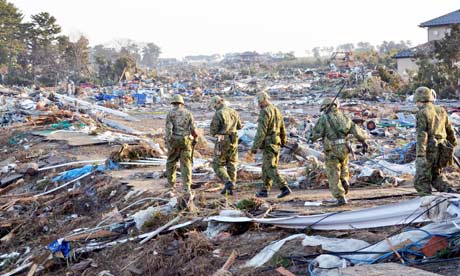Use of Passive
Passive voice is used when the focus is on the action. It is not important or not known, however, who or what is performing the action.
Example: My bike was stolen.
In the example above, the focus is on the fact that my bike was stolen. I do not know, however, who did it.
Sometimes a statement in passive is more polite than active voice, as the following example shows:
Example: A mistake was made.
In this case, I focus on the fact that a mistake was made, but I do not blame anyone (e.g. You have made a mistake.).
Form of Passive
Subject + finite form of to be + Past Participle (3rd column of irregular verbs)
Example: A letter was written.
When rewriting active sentences in passive voice, note the following:
- the object of the active sentence becomes the subject of the passive sentence
- the finite form of the verb is changed (to be + past participle)
- the subject of the active sentence becomes the object of the passive sentence (or is dropped)
Examples of Passive 
| Tense | Subject | Verb | Object | |
|---|---|---|---|---|
| Simple Present | Active: | Rita | writes | a letter. |
| Passive: | A letter | is written | by Rita. | |
| Simple Past | Active: | Rita | wrote | a letter. |
| Passive: | A letter | was written | by Rita. | |
| Present Perfect | Active: | Rita | has written | a letter. |
| Passive: | A letter | has been written | by Rita. | |
| Future I | Active: | Rita | will write | a letter. |
| Passive: | A letter | will be written | by Rita. | |
| Hilfsverben | Active: | Rita | can write | a letter. |
| Passive: | A letter | can be written | by Rita. | |
Examples of Passive 
| Tense | Subject | Verb | Object | |
|---|---|---|---|---|
| Present Progressive | Active: | Rita | is writing | a letter. |
| Passive: | A letter | is being written | by Rita. | |
| Past Progressive | Active: | Rita | was writing | a letter. |
| Passive: | A letter | was being written | by Rita. | |
| Past Perfect | Active: | Rita | had written | a letter. |
| Passive: | A letter | had been written | by Rita. | |
| Future II | Active: | Rita | will have written | a letter. |
| Passive: | A letter | will have been written | by Rita. | |
| Conditional I | Active: | Rita | would write | a letter. |
| Passive: | A letter | would be written | by Rita. | |
| Conditional II | Active: | Rita | would have written | a letter. |
| Passive: | A letter | would have been written | by Rita. | |
Passive Sentences with Two Objects 
Rewriting an active sentence with two objects in passive voice means that one of the two objects becomes the subject, the other one remains an object. Which object to transform into a subject depends on what you want to put the focus on.
| Subject | Verb | Object 1 | Object 2 | |
|---|---|---|---|---|
| Active: | Rita | wrote | a letter | to me. |
| Passive: | A letter | was written | to me | by Rita. |
| Passive: | I | was written | a letter | by Rita. |
As you can see in the examples, adding by Rita does not sound very elegant. That’s why it is usually dropped.
Personal and Impersonal Passive
Personal Passive simply means that the object of the active sentence becomes the subject of the passive sentence. So every verb that needs an object (transitive verb) can form a personal passive.
Example: They build houses. – Houses are built.
Verbs without an object (intransitive verb) normally cannot form a personal passive sentence (as there is no object that can become the subject of the passive sentence). If you want to use an intransitive verb in passive voice, you need an impersonal construction – therefore this passive is called Impersonal Passive.
Example: he says – it is said
Impersonal Passive is not as common in English as in some other languages (e.g. German, Latin). In English, Impersonal Passive is only possible with verbs of perception (e. g. say, think, know).
Example: They say that women live longer than men. – It is said that women live longer than men.
Although Impersonal Passive is possible here, Personal Passive is more common.
Example: They say that women live longer than men. – Women are said to live longer than men.
The subject of the subordinate clause (women) goes to the beginning of the sentence; the verb of perception is put into passive voice. The rest of the sentence is added using an infinitive construction with 'to' (certain auxiliary verbs and that are dropped).
Sometimes the term Personal Passive is used in English lessons if the indirect object of an active sentence is to become the subject of the passive sentence.
